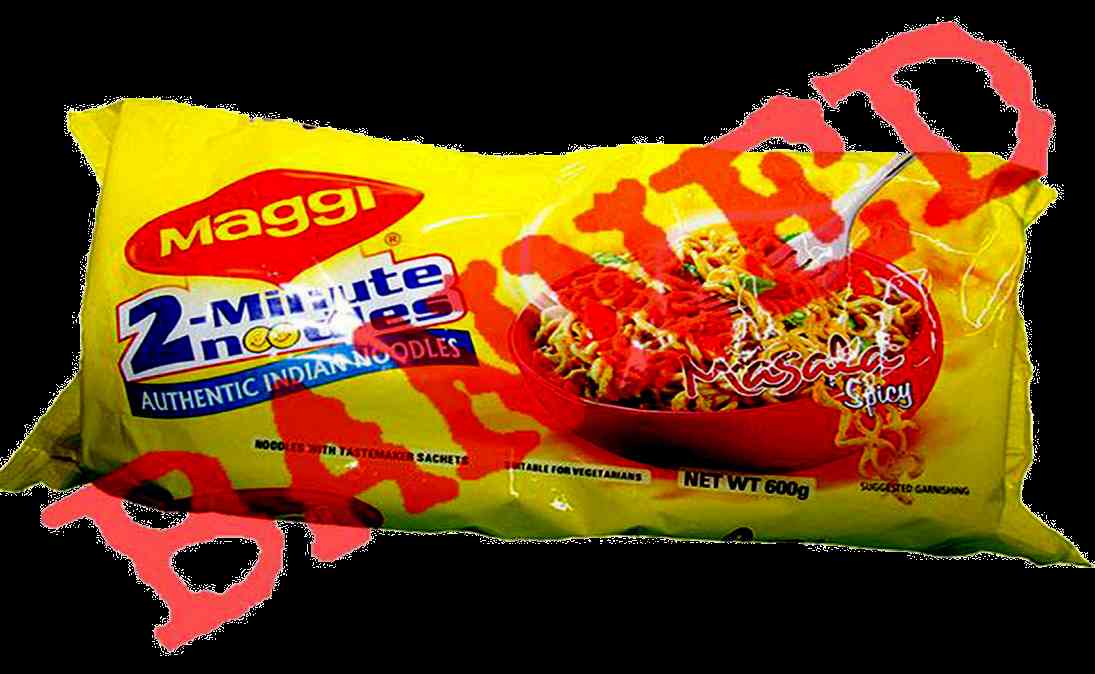How Inventiva Encouraged Indian Regulators Like FSSAI To Be More Vigilant About The Practices And Policies Going On In The Indian Market?

Following a few nations’ decisions to restrict imports of specific Indian spice brands, the FSSAI said that it would conduct random testing of spices and culinary herbs this year, as well as four other categories of food goods. While it may sound good at first that the regulator has fastened the belts and that we will be spared of unhealthy and contaminated food, this attempt is quite in vain. This is because FSSAI had earlier made many attempts to show that they are vigilant about food products revolving in the market. However, there lies a hidden story of failure and negligence on the part of the regulator.
While the national food authority stated that roughly a quarter of the samples tested in the previous three years did not meet regulatory criteria, it did not disclose the results of a pan-India spice testing conducted two years ago. In 2020-21, over 26% of samples failed the test, compared to 23% in 2021-23 and 25% in 2022-23. The FSSAI has examined over four lakh samples this fiscal year, although final data is still being collected.
Inventiva was one of those few media houses that raised flags about the functioning of FSSAI and why it takes action after any other country raised issues about Indian spices. What if Hong Kong and Singapore haven’t raised problems about these Indian spices? Then, we Indians would have continued its usage without knowing that we were consuming the contaminated food. And this is not the first time any such thing happened.
History has shown that FSSAI was found incompetent in keeping the food standards in the Indian market under safety check.
Gaps in FSSAI functioning symbolising regulatory incompetence.
In 2017, the CAG criticised the Food Safety Authority. In 2017, the CAG published a thorough report stating that the Food Safety Authority has extended the permits for various goods despite their proven danger. In many cases, they issued new permits without adequate documentation. This audit uncovered flaws in the body’s operations and cited multiple issues with food certifications and testing, a lack of equipment, and a staff shortfall across its different testing facilities. It has also questioned the absence of norms and processes to control the usage of certain dietary ingredients.
For instance, recall the case of Nestle Maggi, where FSSAI banned Maggi noodles nationwide. It can be termed a good step by FSSAI to ensure the quality of the products. However, the company, Nestle, argued that the ban orders violated natural justice principles, the laboratories carrying out the tests were not accredited by the NABL, and the Authority failed to notify the public in accordance with the Food Safety and Standards Act of 2006.

Furthermore, the company claimed that the test results were incorrect since the items were evaluated beyond their expiration dates, not for their intended purpose, and not sealed for the three-month testing period. This displays that FSSAI has taken action, although it was not fully competent in its procedures and functioning, justifying the claims and flaws mentioned by the CAG report.
Industry regulators ignored social responsibility.
In the last week of March 2022, the FSSAI instructed FBOs (food business operators) to have their products tested for trans fats and, if the items contained no more than 0.2 g per 100 g of food, to apply the trans-fat free mark on the label. This advise was insane, given that all FBOs are already subject to obligatory regulation.
The Food Safety and Standards, i.e. Food Products Standards and Food Additives, Tenth Amendment Regulations, 2020, prohibit the use of trans fat in all foods, oils, and fats beginning January 1, 2022. As a result, the suggestion is meaningless for any food product. In reality, FSSAI and state food safety commissioners should have assured complete compliance. By requiring FBOs to show the trans-fat-free mark, the FSSAI acknowledges its failure to enforce compliance and penalises those who violate the law. This demonstrates how weak the regulation is.
Many of FSSAI’s recent actions have called into question the regulator’s capacity to carry out its mandate, with the industry influencing many of its choices. Several food experts have emphasised the necessity for the food regulator to be more watchful in ensuring food quality and safety in accordance with its mandate, especially in light of the COVID-19 outbreak.
The unfortunate iconic tale of misleading advertisements.
Noncommunicable diseases (NCDs) account for 62% of all fatalities in India. Preventable premature deaths account for 48% of overall mortality. One of the reasons for the rise in NCDs is the intake of unhealthy foods rich in sugar, salt, or saturated fat. Simple and detailed front-of-pack labelling (FoPL) is the most cost-effective technique to alert customers about harmful components all over the world.

Many nations throughout the world have implemented FoPL in various forms. India threatens to lose $4.58 trillion before 2030 as a result of NCDs and mental health issues. Cardiovascular illnesses ($2.17 trillion) and mental health disorders ($1.03 trillion) will result in massive economic losses. However, the food regulator has completely overlooked the issue of NCDs and its linkages to foods heavy in sugar, salt, and fat. It completely neglected the importance FoPL may play while selecting the FoPL format.
The recent case of FSSAI removing the tag of ‘health drinks’ from certain beverages is an example. Though now the consumers are a bit cautious, however, who will take the accountability of all those past years when Indian consumers have consumed normal beverages on the pretext of so called health drinks?
Not only is the food regulator entitled to keep the safety of food standards under check, but it is also the duty of FSSAI to regulate the market by raising awareness among food vendors. Despite having regulations in existence, the FSSAI frequently fails to adequately enforce them. This leads to food adulteration and pollution, which puts public health at risk.
Many street food sellers continue to operate in unsanitary circumstances, placing consumers at risk of foodborne disease. FSSAI inspections of street food stands are frequently inconsistent and ineffectual. Without constant inspection, vendors are less likely to follow hygienic requirements, resulting in the continuance of filthy practices.
The FSSAI has failed to offer enough training and awareness programmes for street food sellers about safe hygiene measures. As a result, many vendors are unaware of the need to maintain cleanliness and correct food handling procedures.
Last month, a video of a boy crying in pain after eating a ‘smoking’ biscuit in Madurai went viral, prompting the Tamil Nadu government’s Food Safety Department to issue an order prohibiting the use of liquid nitrogen and revoke the man’s licence supplied the biscuit to the child. The food vendor was using liquid nitrogen, which is hazardous to health.
 According to a 2018 article released by Canada’s National Collaborating Centre for Environmental Health, “Liquid nitrogen is a liquid with an extremely low boiling point of -196°C that exists as a gas at ambient temperatures. Unintentional contact with fluids might result in burns and frostbite, while unintentional inhalation or ingestion could induce asphyxiation and airway or stomach perforations owing to the intense cold.
According to a 2018 article released by Canada’s National Collaborating Centre for Environmental Health, “Liquid nitrogen is a liquid with an extremely low boiling point of -196°C that exists as a gas at ambient temperatures. Unintentional contact with fluids might result in burns and frostbite, while unintentional inhalation or ingestion could induce asphyxiation and airway or stomach perforations owing to the intense cold.
Medical literature and occupational safety materials frequently stress the importance of adequate ventilation and training while working with chemicals such as liquid nitrogen in culinary contexts. Doctors advise regulatory bodies to practise Increased inspection and explicit standards are suggested to guarantee that food service businesses handle liquid nitrogen correctly, reducing the risk to both customers and employees.
If you think this is the first time such an incident occurred, then wait. In 2017, A 30-year-old guy drank a liquid nitrogen-chilled drink in a Delhi pub, resulting in a large hole in his stomach! While the FSSAI has approved the use of liquid nitrogen since 2011, it is unlikely that it is aware of comparable operations taking place in the nation that may pose major health risks to the general public.
Mr Rishi Agrawal, CEO and co-founder of Teamlease Regtech, a company that assists Ministries, regulators, and private enterprises with compliance rules, stated, “The regulatory ecosystem for food articles in India is one of the most comprehensive frameworks in the world.” However, the absence of ground-level execution has rendered the existing legislation ineffective.”
“While there has been substantial progress in policy, ineffective enforcement has been a stumbling barrier.” The regulator’s enforcement metrics have gradually increased over time. “The business has gone a long way in recent decades, but there is still a long way to go to meet Western food safety standards,” he added.
The bottom line.
The FSSAI, as guardians of the nation’s food supply, requires greater courage and moral responsibility. It presently has a network of over 200 food testing laboratories. However, considering the wide diversity of food sectors, further work is required. Prioritising accredited laboratories, guaranteeing functional state food labs, increasing the skilled workforce, and focusing on norm enforcement are critical. Whether to clarify claims or to crack down on non-compliance, the FSSAI must work with other food-related agencies to guarantee that what we consume and sell is safe.
Aside from the reputational damage that might hamper exports, suggestions that we may be ingesting dangerous items on a regular basis are concerning. This is especially true when our dietary preferences and habits change due to increased wealth. This makes it even more important to have a strong food regulator with the necessary capabilities.
Although heat arises regarding these discussions take place, however, after a certain period, everything cools down, and the health regulators continue to function is an ineffective way, posing a danger to the health of the common man. Things will only change when strict implementation is done on the ground level and the person(s) found the culprit is penalised extensively, which creates an example for others to abide by the rules. Also, on the consumer side, the purchasers of food also need to be careful about what they are spending their hard-earned money. Inventiva, always highlighted such issues where the supreme regulators failed to function properly, instigating them to work in a more responsible approach.




